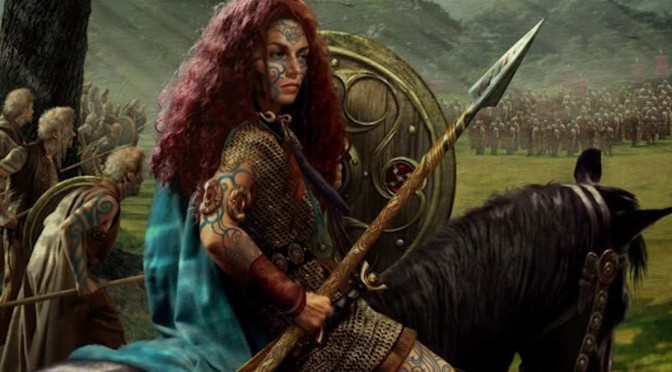The sack of Rome.
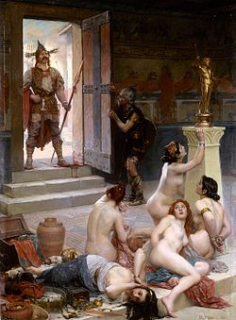 In the early years the Celts certainly treated Rome as just another gallic tribe.
In the early years the Celts certainly treated Rome as just another gallic tribe.
In 387 BC, A single celtic tribe, the Senones were in negotiation to purchase land to the south of the alps, from the etruscans, who a short time earlier had controlled Rome.
The Romans took the role of mediators and were accepted as such by the Senones. There were Celtic rules for such mediation which the Romans promptly broke by taking up arms against the Senones.
As a result the Senones marched on Rome and sacked the city.
It took another 150 years before Rome felt strong enough to challenge the Celts again, but in 220 BC they won a major victory against the combined forces of Samnites, Etruscans and Celts. Che celts then allied with the Carthaginians at the time of Hannibal’s invasion of Italy Rome finally defeated Carthage in 202 BC and commenced the process of expanding outside Italy.
The Celts were however formidable opponents.
Hispania
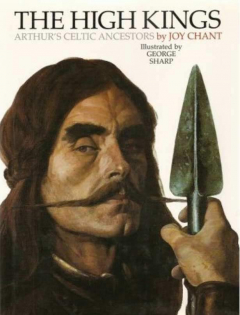 It was in Hispania that the means of dealing with Celtic tribes was slowly but surely identified. The Celts demanded self government.
It was in Hispania that the means of dealing with Celtic tribes was slowly but surely identified. The Celts demanded self government.
They cared nothing for the Roman preoccupation in distinguishing other states as “allies” (related by treaty), “subjugates” (Fought and surrendered to Rome) or “Enemies” no surrender but conquered. They knew that the end result was always the same, Roman colonies created within their territory, taxation and forced service in the Roman army.
High Kings
If a Roman Consul, General or Governor beat them in the field or even if one of them could put a bigger army in the field than they could themselves, then they were prepared to submit and accept the victor as their “High King”
What they could not understand was that the High King they had accepted as a result of his prowess was replaced, often no more than twelve months later. In the eyes of the Celts the role of High King was personal not institutional so the new appointee had to re-establish the right to the role of High King.
It was also difficult for them to understand the total change in character, ethics and strategy from one governor to the next. One governor might be considerate in his treatment of those he vanquished, others murdered indiscriminately even those who sought treaties with the Romans.
Inconsistancies
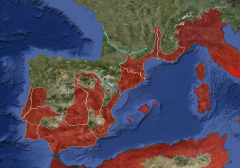 The fragmented nature of the Roman conquest of Hispania and GaulThe inconsistencies of the Roman system led to nearly two centuries ( BC 219 – BC19) of the most vicious fighting with a great loss of life on both sides. It was slow but steady progress; fight a tribe, capture some as slaves, offer them peace, make them Foederatii (relationship governed by treaty), let them self govern, capitalise on their natural resources, get them to accept overall Roman government, pay Roman taxes.
The fragmented nature of the Roman conquest of Hispania and GaulThe inconsistencies of the Roman system led to nearly two centuries ( BC 219 – BC19) of the most vicious fighting with a great loss of life on both sides. It was slow but steady progress; fight a tribe, capture some as slaves, offer them peace, make them Foederatii (relationship governed by treaty), let them self govern, capitalise on their natural resources, get them to accept overall Roman government, pay Roman taxes.
Though over time the Romans advanced from the southest corner towards the northwest there was never a frontier as such. Almost any part of the territory they nominally controlled could rise in rebellion against their rule. Not surprisingly, because of the concept of High King, the rule of every new Govenor or general was challenged and the Celts frequently won.
The Celts never gave up their concept of High Kings and slowly, painfully, Rome learned from this. The painful process was eventually resolved by an accomodation rather than an outright victory.
Despite many reverses and great loss of life, Rome eventually won in Hispania. They then believed that they had the abilty to win, where ever they went, whatever circumstances they found themselves.
Quintus Sertorius
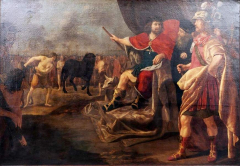 Quintus explains that though it is imossible to pull out a horses tail it is possible to pull out individual hairs. He invented guerilla warfare.The Romans were made aware of what the concept of High Kings really in the context of Roman governance when in BC 83, at a time when Hispania was still in frequent revolt against Roman rule, Quintus Sertorius took over as governor. He was a member of the Populares faction which had been defeated, but not destroyed in a civil war.
Quintus explains that though it is imossible to pull out a horses tail it is possible to pull out individual hairs. He invented guerilla warfare.The Romans were made aware of what the concept of High Kings really in the context of Roman governance when in BC 83, at a time when Hispania was still in frequent revolt against Roman rule, Quintus Sertorius took over as governor. He was a member of the Populares faction which had been defeated, but not destroyed in a civil war.
The Celts of Hispania were interested in the Populares cause, which included in its objectives to bring Roman citizenship to everyone under Roman rule, even those outside of Italy.
The Optimates, the opposing faction in the civil war, sent an army to pursue Quintus and he was obliged to withdraw to North Africa but not before he had made a good impression.In Africa he defeated the Optimate army and captured Tingis (modern Tangier). The Lusitanian peoples in Hispania then invited Quintus to become, under their sponsorship, High King of all Hispania.
His army grew in size and he was joined by other Populares factions from Rome.
In BC 72 when Quintus was on the verge of declaring an independent republic of Hispania, Pompey brought an army to Hispania to carry out a re-invasion of the peninsula. Pompey was twice defeated but the Romans amongst Quintus’ supporters wanted to march on Rome which he declined to do. He had become Hispanic. He was murdered by these same Roman “supporters” during a banquet supposedly in his honour.
Pompey the Great
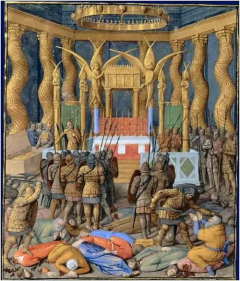 The Celts under roman rule may have been disappointed but in their world this “victory” now made Pompey their new High King.Pompey remained in Hispania long enough to consolidate his position and before he left in BC 71 he had raised four hispanic legions.
The Celts under roman rule may have been disappointed but in their world this “victory” now made Pompey their new High King.Pompey remained in Hispania long enough to consolidate his position and before he left in BC 71 he had raised four hispanic legions.
Pompey’s legions travelled with him on his subsequent conquests of Bithnia, Pontus, Syria and Judah Some senior officers may have been with Pompey when he entered the holy of holies in Jerusalem. He recognised the differences between celts and the greco persian states of the east however and the eastern states were allowed to continue be governed through client Kingdoms, something which was never again utilised in the celtic world,
